#tariffs
Auto Industry 'Unites' Against U.S. Import Tariffs
Of all the things that automakers hate, losing money has to hold a permanent place at the top of the list. If you aren’t making money, you can’t keep building cars — and if you aren’t building cars then you’re not much of an automaker. Following that almost irresponsibly oversimplified logic, it’s no wonder the industry has been hesitant to endorse President Trump’s suggestion that the United States may need to enact new import tariffs.
While seemingly eager eager to provide manufacturers with the tools to get things done, the current administration clearly wants it done in America — and isn’t above punishing those who refuse to reciprocate. As a result, lobbyists have begun putting in some overtime.
Trump to EU: Expect Auto Tariffs Without Trade Deal
Earlier this week, the European Union warned that if the United States imposes any new tariffs on European-built vehicles, it can expect similar levies on American products. However, armed with the Commerce Department’s confidential report on automotive imports, President Donald Trump doesn’t appear remotely interested in backing down.
While Trump previously agreed not to impose additional duties on European cars, the arrangement hinged upon the two coming together on trade. Unfortunately, while both sides seem eager to work out a deal, they can’t quite manage to keep the constant threats down to a dull roar.
Don't Think We Won't Fire Back, EU Warns U.S. After White House Receives Key Auto Import Report
The showdown between the European Union and United States over auto tariffs reminds this viewer of Charles Bronson and Henry Fonda in Once Upon a Time in the West, and with good reason. Both players appear ready to reach for their Colt Single Action Army in a bid to do maximum damage to the other.
After the U.S. Commerce Department delivered a confidential report to the White House on Sunday, the EU is warning its trading partner that any tariffs imposed on European-built vehicles will be met with similar levies on American goods.
Trade War Watch: Congress Tries a New Tactic to Block Auto Tariffs
With the United States’ government shutdown now over, lawmakers have an opportunity to work together as promised. Interestingly, one of the first pieces of bipartisan legislation to emerge after the federal bureaucracy resumed operations involves a plan to severely limit presidential authority to impose tariffs for national security reasons.
The Bicameral Congressional Trade Authority Act, introduced by Senators Patrick Toomey (R-PA) and Mark Warner (D-VA), along with House Representatives Mike Gallagher (R-WI) and Ron Kind (D-WI), would require the president to get approval from Congress before taking any trade actions based on national security threats. If passed into law, the bill would let the Legislative Branch effectively block the tariffs being proposed by the Trump administration on automobiles and automotive parts.
Automakers Understandably Freaking Out Over 'No Deal' Brexit
With Britain’s parliament rejecting Prime Minister Theresa May’s latest Brexit deal, European automakers stand to face some strong headwinds in the near future. As of now, no clear path lies ahead. Many believe the European Union will continue playing hardball, punishing Britain for leaving. But, even if it doesn’t, loads of regulatory and trade issues must be resolved in short order to avoid problems.
There’s also no shortage of hyperbole surrounding the issue. Just this morning I heard cable news call it “the largest crisis in Britain’s history,” as if World War II never happened. A channel away, another outlet proclaimed how splendid it would be for trade between the United Kingdom and United States.
Regardless of which side of the fence you fall, there’s more at stake here than Theresa May’s job. Automakers, who like consistency above all else, worry a no deal plan for “British independence” could be tantamount to flipping the industry table. They don’t like being caught up in the uncertainty surrounding Brexit, and there appears to be an endless list of issues to contend with.
Trade War Watch: China to Temporarily Suspend U.S. Auto Tariffs
China announced Friday its intent to reduce tariffs on imports of American-made cars as it tries to negotiate a trade deal with the United States. As you’ll recall, the People’s Republic imposed additional punitive tariffs on U.S. cars and auto parts earlier this year after promising it would lower the trade barriers on a global scale.
Things look to be different this time around. China has already taken steps to scale back the trade war and appears ready to continue down that path. Earlier this month, President Donald Trump and Chinese President Xi Jinping agreed to a truce in the trade war at their meeting in Argentina. This was followed by an announcement, via Trump’s Twitter account, claiming China had agreed to scale back auto tariffs against the United States.
Trade War Watch: Trump Says China Will Remove Car Tariffs, China Claims Nothing
Last night President Donald Trump tweeted that China had agreed to reduce tariffs. While The People’s Republic already lowered tariffs over the summer, it chose to cut the United States out of that deal as trade relations worsened. In fact, America found itself subject to an increased, 40-percent fine on imported autos while the rest of the world saw their tariffs (partially) eased. But the president seems optimistic.
“My meeting in Argentina with President Xi of China was an extraordinary one,” Trump explained in a follow-up post. “Relations with China have taken a BIG leap forward! Very good things will happen. We are dealing from great strength, but China likewise has much to gain if and when a deal is completed. Level the field!”
Meanwhile, China remains silent on the matter.
Trade War Watch: Trump Reportedly Delaying Auto Tariffs, Clock Still Ticking
The Trump administration was supposed to make an announcement Tuesday as to whether or not imported automobiles pose a national security risk, following discussions with trade representatives. While it wasn’t presumed that the White House would say anything truly definitive or hold a formal press conference on the issue, it was assumed that the president would take a stronger public stance either for or against an earlier proposal to raise foreign auto import tariffs to 25 percent. And it has, in a way.
According to those familiar with the matter, the White House decided to postpone any major decisions after discussing a draft Commerce Department report on the impact of auto imports with trade reps. However, the administration doesn’t have forever to make up its mind. Nor does its trading partners, which could be the point.
Trade War Watch: Were the Auto Tariffs Ever Supposed to Be More Than a Threat?
The U.S. Commerce Department has submitted draft recommendations to the White House on its investigation into whether it’s prudent to impose tariffs of up to 25 percent on imported automobiles and parts, based on the premise that they’re a threat to national security. The possibility has the industry in a tizzy, with both foreign and domestic brands lobbying against it.
Truth be told, we half assumed the entire concept was a ruse to bring other nations to the bargaining table with something to lose — a scenario where the United States could be viewed as a favorable alternative to tariff-crazy China. However, China has begun opening its market to foreign automakers while also placing a massive 40 percent duty on American autos, leaving the U.S. at a disadvantage. Now it looks as if the Trump administration may go through with everything.
Trade War Watch: Ford Blames Trump for Sky-high Steel Prices
Ford Motor Co. is blaming Donald Trump’s commodity tariffs for elevating U.S. steel prices higher than any other market on the planet. Regardless of your opinion on the president’s policies (the economy is reportedly booming), it’s a little hard to rebuff Ford’s criticisms on this one. The automaker’s now going straight to the source in an attempt to remedy the situation.
Trump hasn’t gone easy on Ford. He spent a large portion of his presidential campaign coming down on the automaker over its plan to move small-car production to Mexico. However, the company’s about-face proved a short-lived victory — it ultimately decided to stop selling cars altogether. This was followed by Ford’s cull of the upcoming Focus Active in North America after Trump’s 25 percent levy on Chinese-built vehicle made the introduction impossible (and unprofitable).
BMW Buying Out Brilliance Automotive in China, Adding Capacity for U.S.
Now that China has relaxed its joint-ownership mandates, BMW has announced that it will procure a majority stake in its venture with Brilliance Automotive. The German firm will be the first foreign automaker to have majority control of its business in the region.
Being first will not come cheaply, however. It will cost BMW $4.2 billion to assume control with a majority stake of 75 percent of the business — albeit as part of a larger deal. All the manufacturer has to do is come up with the funds and wait until 2022, when rules limiting foreign ownership for all Chinese auto ventures are officially lifted.
Car, Parts Companies Exhale, but Not Everyone's Thrilled by USMCA
Canada’s autoworkers feel pretty confident they’ll still have a job next year, as the free trade agreement reached by the U.S. and its northern neighbor Sunday night pretty much keeps the status quo alive in that country’s auto sector.
Just last week, with headway essentially absent from the trade negotiations, President Trump repeated his threat of levying a 25 percent import tax on Canadian vehicles. Such a tariff could easily have seen 160,000 jobs erased from the auto and parts manufacturing industries; perhaps more.
However, just because the industry came out all right in the end doesn’t mean the future is entirely rosy.
Amid Cross-border Feud, a Pricier Dodge Challenger Looks More Likely Than Ever
Man, if you live south of the 49th parallel, you missed quite a hubbub yesterday evening. Actually, Americans likely caught a whiff of it, as U.S. President Donald Trump’s lengthy post-UN press conference Wednesday covered a lot of topics, including the one that had Canucks up in arms.
Up here in the Great White North, a country some commenters would prefer to never see mentioned (as this writer apparently mentions it ALL THE TIME), trade remains an understandably hot topic. Canada hasn’t reached a renegotiated free trade agreement with the U.S., unlike Mexico, and there’s a Sunday deadline looming to sign on to the U.S.-Mexico accord. Tick tock. Among other planks, Canada wants to protect its dairy cartel — an entity not universally loved up here, as it greatly increases the price of common food staples on store shelves. However, protecting jobs in that sector means risking jobs in the larger auto sector, a crucial industry whose vehicles Trump has threatened to tax to the tune of perhaps 25 percent. Auto parts could see a 10 percent tariff.
Canada exported $48.8 billion worth of vehicles in 2016.
Toyota, Honda, and the Detroit Three all have assembly plants in Ontario. Last night’s news conference brought nothing but worry to the nearly 200,000 people employed in the vehicle and parts manufacturing sector. What would it mean if Trump pulls the tariff trigger? And is Canada blameless in not yet reaching a deal?
As Ford Takes a Hit, Hackett Appeals to Trump to End Trade Disputes
Ford’s decision to construct the current-generation F-150’s body purely of aluminum paid off in terms of lightweighting, fuel economy, and sales, but rising commodity costs over the past couple of years eroded some of the financial benefit. There’s far greater headaches facing Ford these days, as the industry grapples with tariffs on not just imported aluminum and steel, but vehicles as well.
A second income-sucking tariff hit in July, when the U.S. applied an import duty of 25 percent on a slew of Chinese goods, prompting China to up its own tariffs on American goods, including automobiles. Ford isn’t having it. Having already lost $1 billion in profit, CEO Jim Hackett has a message for President Trump.
A U.S.-launched Trade Dispute Is Helping Toyota in One Key Market, but for How Long?
While the trade situation is still very much in flux, Toyota sees itself as standing to gain from the turmoil, just not in the United States. The automaker, along with other Japanese brands, finds itself in an advantageous position in China — a massive market facing its own troubles.
China’s anger at the U.S., and vice versa, could mean big bucks in the short term for Toyota.



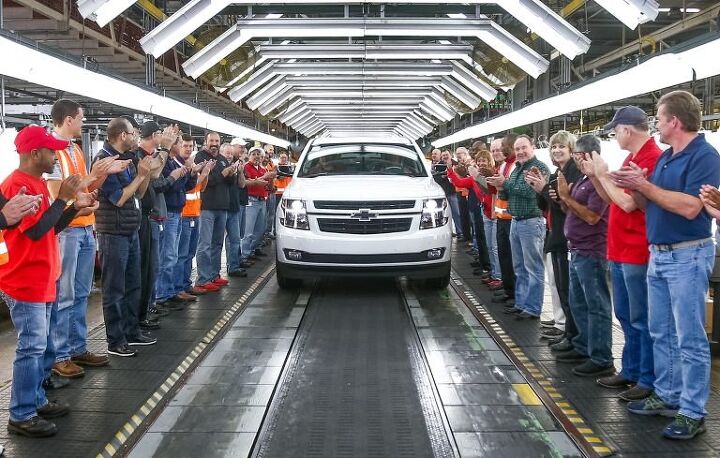
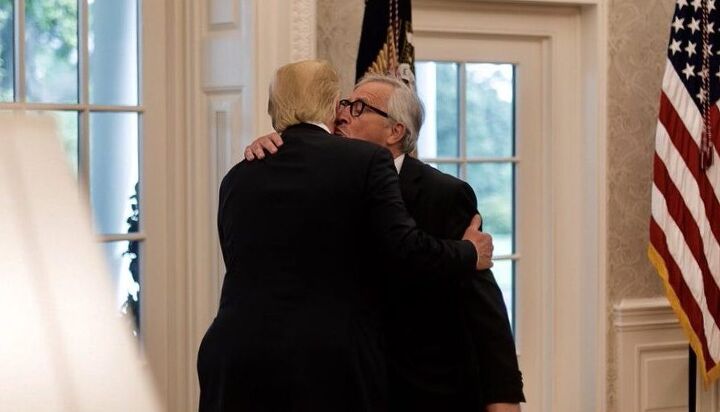
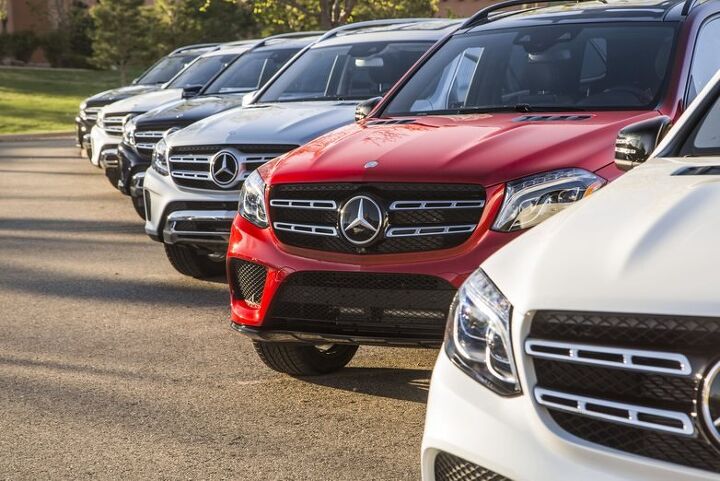



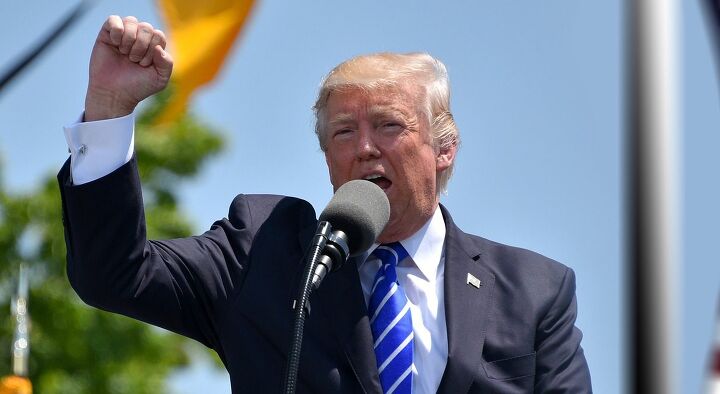




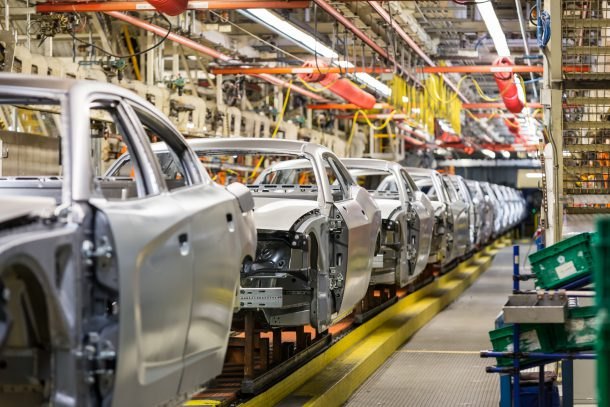

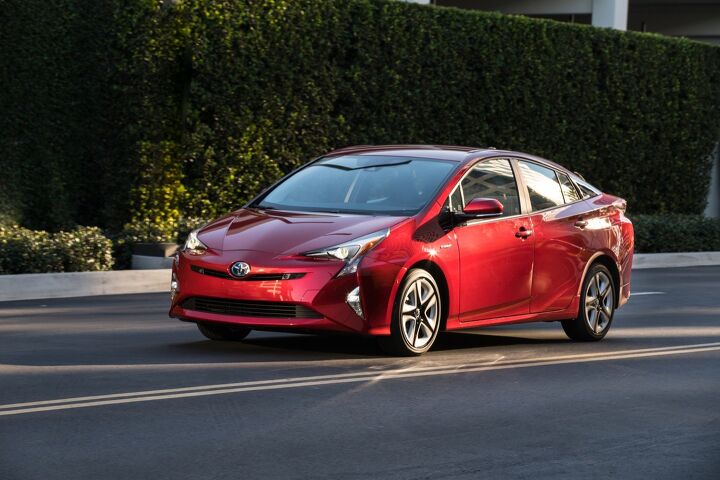












Recent Comments